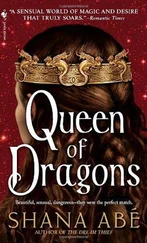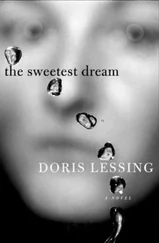“Yes, sir.”
“I expect you to make the most of this opportunity.”
“I shall, sir.”
“Indeed. Not many patients from Moor Gate will ever be offered such a reprieve. You must always remember them and your months spent there. Strive to succeed for their sakes, as well as your own.”
I wondered, very seriously, if Mr. H. W. Forrester had ever noticed the curtain cord hanging down the wall just behind him or considered how easy it might be to wrap it around and around his neck.
He leaned forward again, his jowls swelling over his collar, and frowned at me with his owlish disapproval. The diamond securing his tie flared.
“You seem much improved from your first years here, child, but do not give me reason to regret this arrangement. Obey the headmistress without question, and fulfill all your duties to the duke and to the school.”
“Yes, sir.”
He frowned at me for a moment more, then sighed. “That will be all, Miss Jones.”
And it was. That had been my last evening in the Home.
Idylling, Iverson, dukes and bombs and sea-bathing …
I didn’t care if the Huns shelled it every night, if the duke wanted me to dance a jig for my suppers, or if the school itself was situated smack in the middle of the South Pole. It would be better than Blisshaven, I told myself, savoring each chewy bite of that cold sausage on the train. Better than Moor Gate.
Better than anything, really. How could it not be?
Of course, that last, hopeful thought occurred to me only hours before I would meet Jesse and Armand, those two savagely different and yet dangerously similar creatures who were destined to dig their talons into me and change my life forever.
Mine was the final stop of the line. By then there were only two of us left in the compartment, me and a slouched, elderly man with a tweed cap pulled down low over his ears, a cane and valise propped by his feet. He’d been snoring for the past two hours, even through the lurching stops and starts.
Beyond the glass of my window the night was now amethyst. Infinite amethyst, deep and dark with a ripple of stars winking over the obsidian break of the forest paralleling the tracks. I found that depth of purple sky mesmerizing. Nights in the city were always gray or black or the color of the streetlights. Always. So I wasn’t sure why this particular hue—those stars, the jagged line of trees—was so familiar. I must have imagined it this way, I decided. I read so much. I must have read of amethyst nights and imagined it.
“ Bourne mouth, end o’the line,” called the stationmaster from past my window, clumping along the wooden platform as the train hissed to a halt.
I stood, stretching the ache from my shoulders, and found my suitcase. A glance back at the snoring man showed he was already up and shuffling out, so I followed him, my case bumping against my knees.
A waft of damp air hit me as I exited, stirring the loose strands of hair that had pulled free of my chignon. It wasn’t balmy precisely. It was April, so it wouldn’t be, even here. But it carried the promise of warmth, smelling strongly of the salty Channel and of the coming summer that only waited to bloom.
I took it in with wonder. I could taste the sea, I realized. I could taste it.
“Last stop, miss,” barked the stationmaster, now paused before me. “Everyone off. Even little girls, eh?”
I had lingered too long on the steps leading down to the platform. In my chagrin, I jumped over the last two rungs, landing smartly on both feet, but the man was already pacing off.
I walked slowly away from the train, looking around the platform.
Someone was supposed to meet me. Director Forrester hadn’t known who, but he had been reasonably certain—those had been his exact words, reasonably certain, mumbling to himself as he’d ruffled through all the papers on his desk, because surely they could not expect you to find it on your own, no, indeed; I cannot seem to locate the telegram that says so, but —that someone from the school would meet me here and take me on the rest of the way to Iverson, which apparently involved traveling by foot and carriage and maybe even a ferry. I was as unclear on the exact location of the school as the director had been.
I prayed he was right, that someone would come. I didn’t have enough money left for another cab.
But … the station itself seemed closed, its curtains shut, its windows dark. That by itself wasn’t too surprising; in London the streetlamps were extinguished at six and windows were papered in black to block any little leaks of light. No one wanted to guide the Germans’ nighttime bombs. Yet the train station’s windows weren’t papered. There was simply no one left inside to turn on the lights.
I did hear music playing from somewhere, lovely and haunting, muted. Perhaps the stationmaster had left on a phonograph in his office.
The platform was virtually empty. There was no one at all to my left, toward the end of the train, and only a pair of porters unloading a stack of luggage far up by the front, near the first-class compartments, threading in and out of a single pool of light cast from a lamppost nearby.
The stationmaster had aimed their way. After a few more minutes of glancing nervously around the deserted platform, I did the same.
Before I’d gotten far, a new cluster of people approached the growing wall of trunks. There were four of them plus the stationmaster, their hats and shoulders stroked with gold from above. One of the newcomers was a man of about forty in a long taupe coat. The other three were younger people more my age, two boys and a girl.
Or not quite my age, I amended to myself, as the nearest of the boys noticed my approach. They were all taller, probably a few years older. And much, much better dressed than I.
The boy who’d seen me had sandy hair and heavy-lidded hazel eyes; they looked me up and down without interest before he turned his attention back to his companions.
“… to Idylling,” the second boy was saying to the long-coated man. “Is it really just you, George? I mean, look at all this. Chloe alone brought enough trunks to fill three autos.”
“Armand!” protested the girl, with a sort of trilling little laugh. “Honestly!”
“Not to mention Laurence’s and mine,” the boy went on, speaking over her. “No, there’s no hope for it. There’s not room for all of us. We’ll have to motor there without you.”
“My lord, I don’t believe His Grace will—”
“Right, well, what Reginald doesn’t know won’t hurt the rest of us, will it, old chap? I’ll send Thomas back for you with the auto as soon as I can. You can wait here with the baggage.”
“Sir,” broke in the stationmaster from behind them, just outside their ring of light. The other four angled as one to see him, still brushed in buttery gold. The stationmaster rocked back on his heels. “We closed for the night five minutes past, sir.”
“Ah,” said the second boy. He had longish chestnut hair that touched the top of his starched collar; much of his face was obscured by the brim of his hat, but I saw him tug at his lower lip in thought. Even to me, it looked utterly contrived. “I see. Perhaps, though, you might make an exception tonight? For the duke?”
“The duke, sir?”
“Well, the duke’s son, ” said the hazel-eyed boy, sounding impatient. “Lord Armand, of course.”
“Station closes at ten sharp,” said the stationmaster. “Rules, sir.”
“Now, really, ” began the boy named Laurence, and in his clipped voice he was speaking very quickly, but curiously enough I no longer heard what he was saying, because just then the other one—the Duke of Idylling’s son himself, I supposed—had caught sight of me hanging back in the shadows.
Читать дальше












